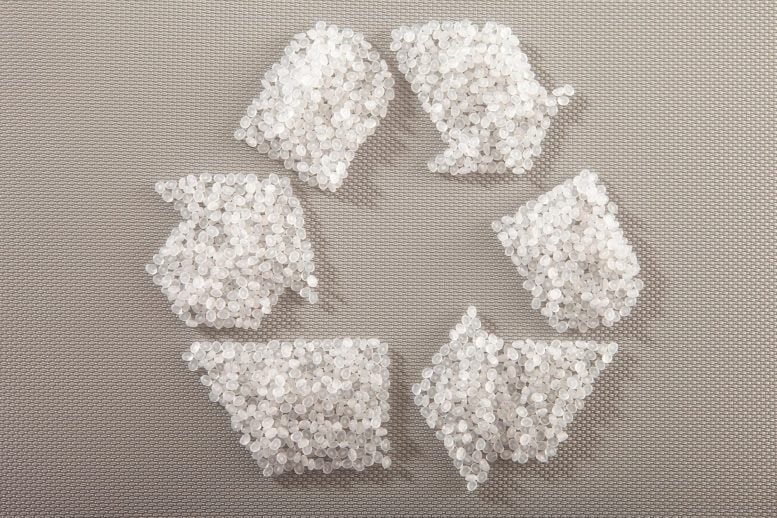A groundbreaking discovery presents a promising method for breaking down stubborn plastics like Plexiglass into their original building blocks, potentially transforming the recycling landscape.
Unlike traditional recycling methods that often degrade plastic quality through mechanical processing, this new chemical approach allows for the complete recovery of monomers, facilitating high-quality reuse.
Breaking Down Plastics into Monomers
Researchers have developed an innovative technique to decompose plastics such as Plexiglass into their fundamental components, known as monomers, making them easier to repurpose. This advancement could significantly mitigate plastic waste, which remains a pressing environmental issue.
Conventional plastic recycling typically involves shredding, cleaning, and remelting the material. However, this process often diminishes the quality of the plastic over time. In contrast, reducing plastics to their monomer state enables a more thorough purification, allowing for the reforming of high-quality materials without sacrificing performance.
Plastic Waste Statistics (Annual Estimates)
- Global Plastic Waste: More than 400 million metric tons of plastic waste are produced each year.
- Recycled Plastic: Only about 9% of plastic waste is effectively recycled.
- Landfills & Incineration: Approximately 19% is incinerated, while nearly 50% is disposed of in landfills.
- Ocean Pollution: An estimated 11 million metric tons of plastic enter the ocean annually.
How Light and Solvents Facilitate Plastic Breakdown
In their study, Hyun Suk Wang and colleagues found that exposing Plexiglass and similar plastics to violet light in a dichlorobenzene solvent can effectively break them down into their original monomers. This reaction appears to be driven by chlorine radicals released from the solvent, which initiate the breakdown process.
The researchers emphasize that this method can be scaled up for industrial applications and allows for precise control over the degradation process. They believe it could become a widely applicable and efficient solution for plastic recycling.
Reference: “Visible light–triggered depolymerization of commercial polymethacrylates” by Hyun Suk Wang, Mikhail Agrachev, Hongsik Kim, Nghia P. Truong, Tae-Lim Choi, Gunnar Jeschke, and Athina Anastasaki, February 20, 2025, Science.





